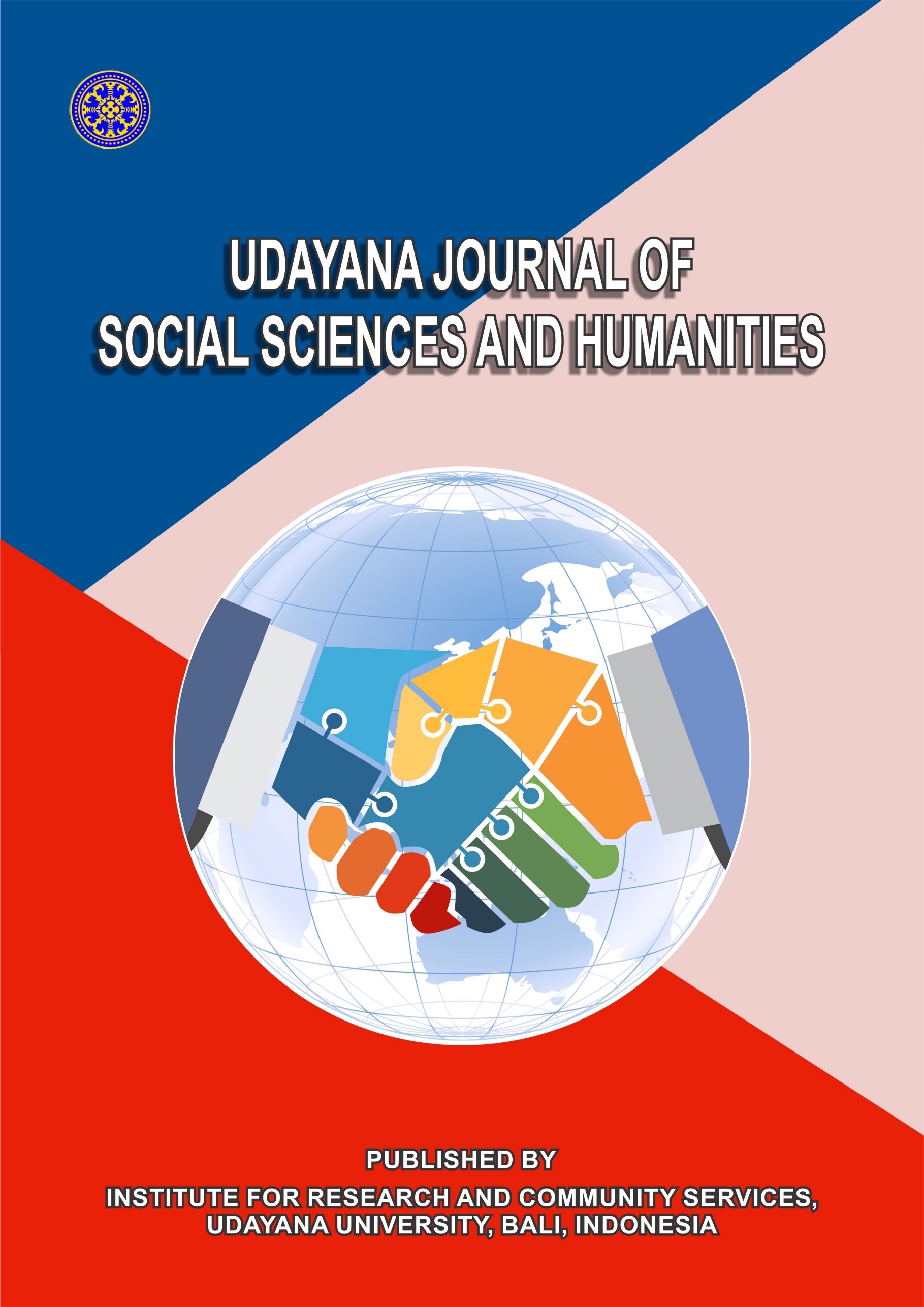Negative Forms in Nusa Penida Dialek
Abstract
This research entitled Negation In Balinese Language Dialects Nusa Penida. This study aims to describe the expression of negation in the dialect of Nusa Penida. The Balinese dialect of Nusa Penida has its own distinctive features when compared with the Balinese language in general. Limitations to be achieved in this study is the determination of negation in the dialect of Nusa Penida. This review provides information about the negatives in Balinese dialect of Nusa Penida. The research method used is a descriptive method and interview technique. (Mahsun, 2005). The conclusion of this research is that the form of negation in the dialect of Bali Nusa Penida language is expressed lexically namely ndek, tare, bohung, au nah, and tare enden. While ndek and tare both have the meaning of 'no'. Both can also replace each other in the construction of certain sentences such as sentence prohibitions and sentences that states never. The word bohung has inherent meaning 'not so'. This word can not be replaced. The word au nah has two meaning 'no tau (pasti)' and 'tidak tau (ragu)'. While tare enden has meaning of 'not yet'.






